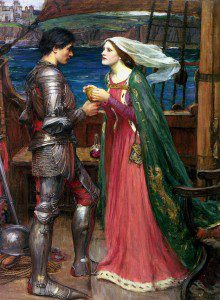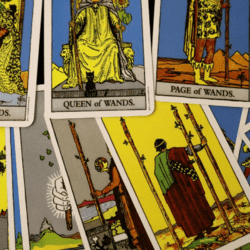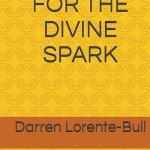 Most of the stories featuring witches and druids seem to be paranormal romances or fantasy fictions. The people who write them are not practicing Pagans – you can tell because they get so much wrong. For many authors, the Pagan character is a convenient plot device, or a way of bringing in a bit of glamour, mystery and magic. Those authors who are Pagan are often more drawn to the possibilities of ancient times, Arthurian myth, the burning times and the never-was history in which the magic was bigger and more flamboyant than it is today.
Most of the stories featuring witches and druids seem to be paranormal romances or fantasy fictions. The people who write them are not practicing Pagans – you can tell because they get so much wrong. For many authors, the Pagan character is a convenient plot device, or a way of bringing in a bit of glamour, mystery and magic. Those authors who are Pagan are often more drawn to the possibilities of ancient times, Arthurian myth, the burning times and the never-was history in which the magic was bigger and more flamboyant than it is today.
I tried writing a fiction book about regular modern Pagans, based around a moot. A warts and all approach, with a bit of bitchcraft, the usual sprinkling of enthusiastic conspiracy theorists, the fluffy bunnies, the well meaning, the questers and the confused. I never finished it. It caused me a lot of headaches, because I wanted it to be realistic, and exciting, and a bit magical. The trouble with actual modern Pagans is that the only time things getting exciting is when a couple of groups, or individuals, get really cross with each other and start threatening legal action. And you know, that’s not a face of Paganism I feel good about. Most of the time, when Pagan and for that matter Druid communities are fine, they potter along quietly with very little drama. It’s lovely to live in, but it makes for dull fiction.
There’s only so far you can push the Pagan magic before you tip into movie magic (with plenty of pyrotechnics) and move away from the normal experiences of normal Pagans. For most people, magic is a subtle experience. It’s doesn’t come with sound effects and flashing lights, but as a sense of wonder, awareness and possibility, a shift of consciousness that isn’t readily explained.
Ceri Norman’s novel Serpent’s Mound is a good attempt at writing modern Pagans who are plausible and dealing with magic. I found the Pagan elements in Phil Rickman’s books pretty good too. In both cases, it’s not what I experience, but I can sort of believe it, at least enough for the purposes of enjoying a good read. Kevan Manwaring’s The Long Woman also deserves a mention. The rest of the Windsmith series shifts more towards otherworldly fantasy, but The Long Woman stands on the real-world side of mystery and possibility, hinting and suggesting in beautiful ways.
In my own writing, I have yet to put anything out there that I really feel captures the magical realism approach modern Paganism needs. Other cultures have it, reclaiming knowledge and belief crushed by colonial invasion, and reimagining a magical world. I think Charles De Lint brushes along the edges to good effect too, but mostly we don’t have a magical realism for modern Paganism. I wish we did, and I wish I had a clue how to write it.
Thus far my only published attempts have contained a number of cheats. Hopeless Maine has a witch in it – your classic broomstick riding variety, but that’s a fantasy-history setting, and she fits into the mechanics of it in ways that make sense for Hopeless, but not for the reality I live in. The latest go, Intelligent Designing for Amateurs, has a lot of Druid material in the mix. I jammed shamelessly on the colourful insanities of revival Druids. I stole magical cauldrons from Celtic myths and did unspeakable things with them. There were some divination scenes. But I cheated because it’s not modern Paganism, it’s that lovely never-never time of Steampunk, with the obligatory inventor, a freak show, an ex-pirate and some sinister mice. It’s not what you’ll find down the pub for a moot, or out there in a ritual circle. It’s mostly me being silly.
I want there to be a modern Pagan equivalent of something like Isabelle Allende’s House of the Spirits. I see the sense of presence and spirit in Hayao Miyazaki films (Spirited Away, Howl’s Moving Castle, Arriety, etc.), and while I love the way in which that clearly draws on a Japanese tradition, I wish we had something to match it. I’d love to think I could do something of that ilk, but as yet I have not found the right story to tell; one that would capture something of the experience of being a modern Pagan, warts and all, and convey a feeling of the numinous, and not shift so far out of reality as we live it as to become unequivocally a fantasy novel. I want to write something that leaves people thinking, “Maybe it could happen like that.”
Druid Thoughts is published on occasional Wednesdays on Agora. Follow it via RSS or e-mail!

















